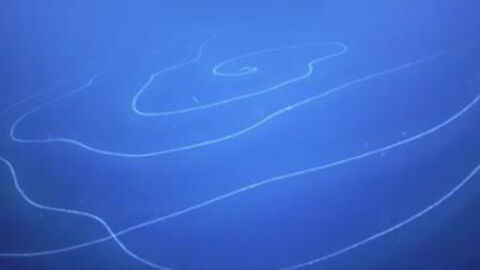While marine biologists at Kaloko-Honokohau National Historical Park in Hawaii were conducting a routine visit to monitor the condition of the corals, they had an unexpected encounter. In the midst of plastic debris that polluted the scene, the researchers discovered a tiny baby octopus, which has since won over the hearts of many Internet users.
Discover our latest podcast
No bigger than a pea, this sympathetic octopus is endowed with a large head with two large black eyes that give it a cartoon-like look. Its tiny tentacles, like the rest of its body, are stained with orange spots: possibly chromatophores that will allow it to change colour dramatically in adulthood.
According to Sallie Beavers, marine ecologist for the park, it could be a daytimeoctopus (Octopus cyanea, able to change colour) or a nocturnal octopus (Callistoctopus ornatus), two species that are regularly found in Hawaiian waters. In adulthood, these specimens can weigh more than 5 kilograms, a very impressive growth for sure!
Plastic pollution: more of a danger than a shelter
The baby octopi have a habit of hiding under floating debris until they have reached a few months of age. This little guy was released ‘safe and sound in a small protected area’, the park’s Facebook page declares.
Although it provides temporary protection for these creatures, plastic pollution poses a real threat to the marine environment and its presence in the pure waters of Hawaii does not reassure researchers.
It is estimated that about eight million tonnes of waste spill into the oceans every year – which is the equivalent of the contents of a garbage dump being emptied every minute. As the trend is far from being reversed, estimates have suggested that in 2050 there may be more plastic in the ocean than fish. A tragedy that is already regularly illustrated with the discovery of marine animals trapped or killed by plastic waste lost in the ocean.















